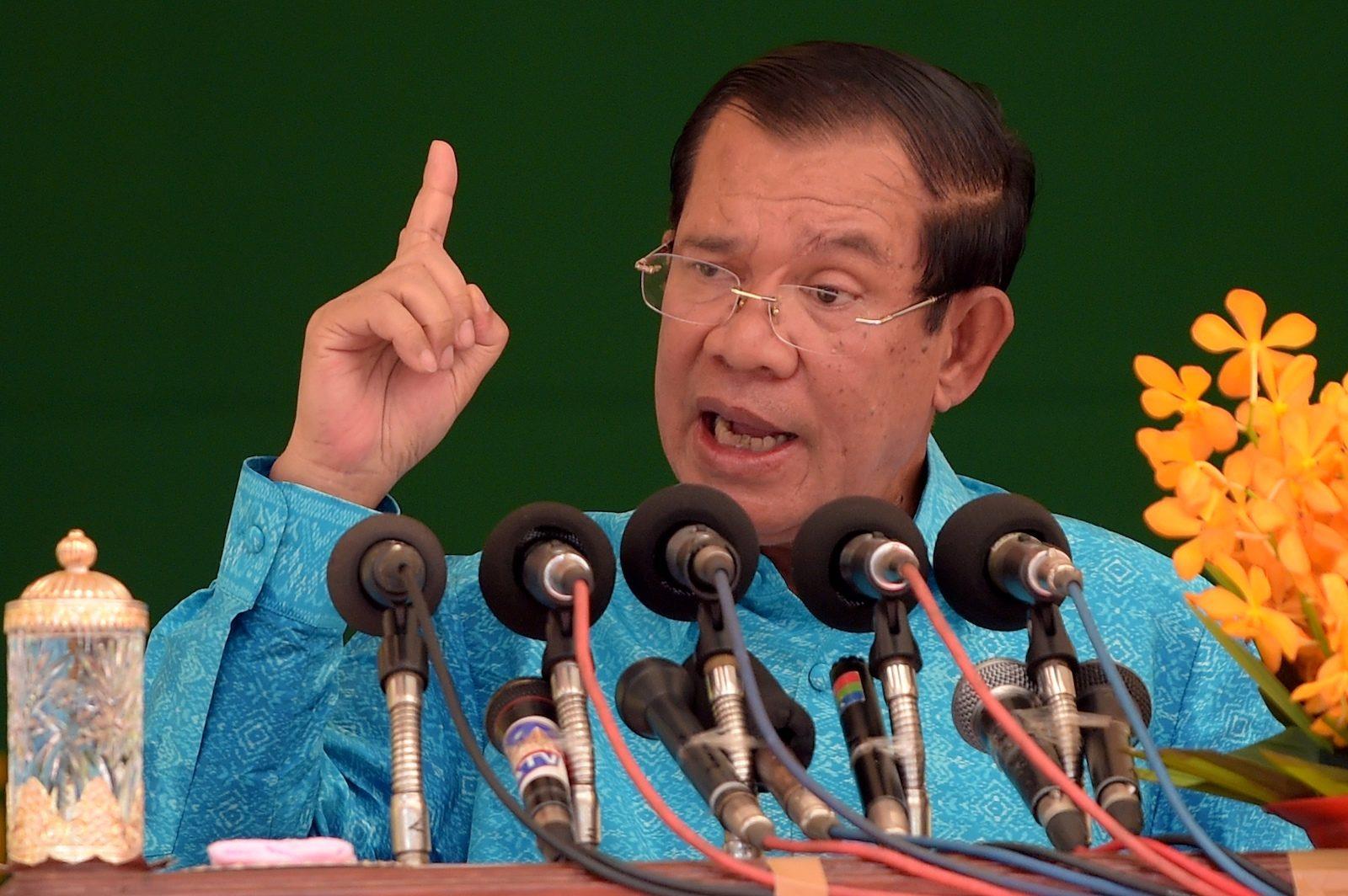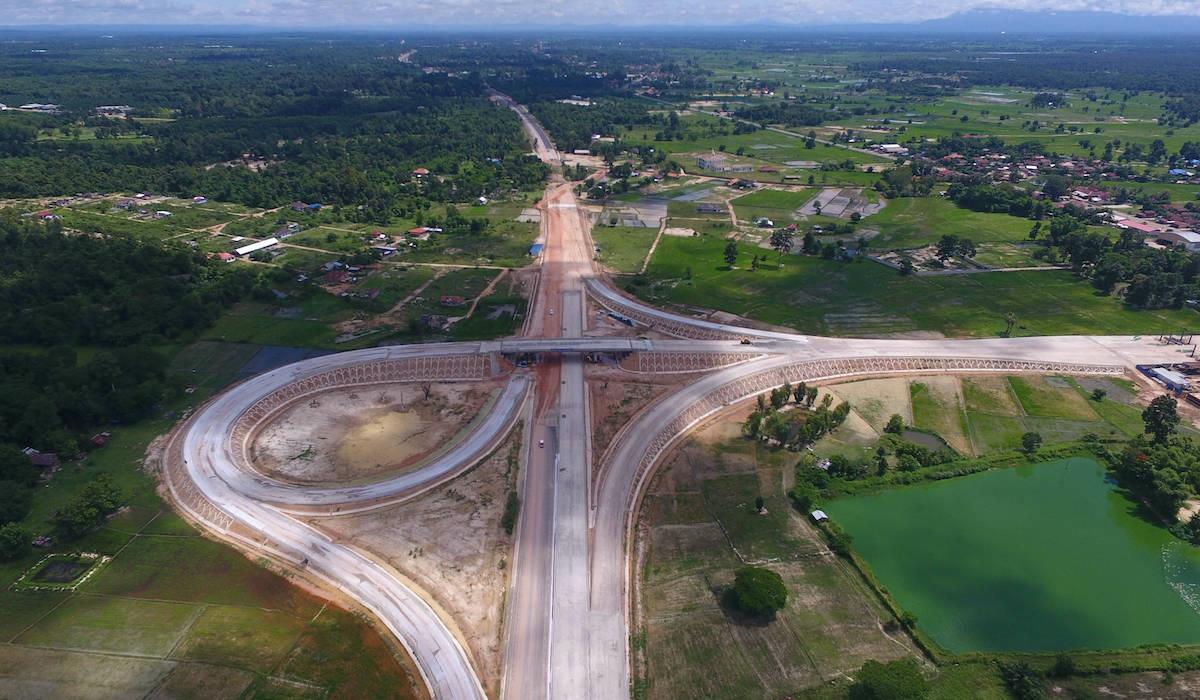(MENAFN- Asia Times) For the first time in many years, Vietnamese Communist Party chief Nguyen Phu Trong held tripartite talks on September 26 with General Secretary of the Lao People's Revolutionary Party Thongloun Sisoulith and Cambodian Prime Minister Hun Sen.
Analysts and observers saw the Hanoi-hosted talks as a significant move as Vietnam attempts to reassert influence over its two historic allies, which have increasingly turned to China in recent years.
The Vietnamese Communist Party has long considered itself the benefactor and“big brother” of Cambodia and Laos' ruling parties, both of which it helped come to power in the 1970s. Vietnam almost single-handedly supported both countries' socialist governments until they opened up to the outside world in the 1990s.
The convening of a tripartite meeting“is a significant marker of Vietnam's attempt to ensure that it is not marginalized by China,” Carl Thayer, an emeritus professor from the University of New South Wales in Australia, told Asia Times.
Hun Sen, who arrived in Hanoi representing the ruling Cambodian People's Party (CPP), also met with Vietnamese State President Nguyen Xuan Phuc. So, too, did Thongloun, who is also the state president of Laos. Hun Sen is believed to have also met with Vietnam's prime minister, Pham Minh Chinh.
The ruling CPP came to power in 1979 after several Khmer Rouge defectors, including Hun Sen, returned with the support of the Vietnamese military to overthrow the genocidal regime. China, a chief benefactor of the Khmer Rouge, subsequently unleashed a border war against Vietnam, the last conflict both countries fought.

Cambodia's Prime Minister Hun Sen. Photo: AFP / Tang Chhin Sothy
Vietnam propped up the internationally-ostracized socialist regime in Phnom Penh until the late 1980s, when peace talks started Cambodia on the path to a constitutional democracy, and the then-named Kampuchean People's Revolutionary Party rebranded itself as the CPP.
Vietnam's Communist Party was also the main benefactor of the ruling Lao People's Revolutionary Party (LPRP), which it helped take power in 1975 after decades of civil war in the landlocked state.
All three countries were also shaped by their collective history of French occupation, when they were subsumed together as part of French Indochina. Improving cooperation with its Cold War-era allies has been a key goal for the Vietnamese Communist Party in recent years.
At its National Congress in January, a quinquennial event at which new leaders are selected and policies debated, the Political Report declared that Vietnam should attach“importance to the development of traditional, friendly and cooperative relations with neighboring countries.”
Vietnam's newly-elected state president, the former prime minister Nguyen Xuan Phuc, made his first foreign trip to Laos in August this year. Thongloun, who was elected chief of the LPRP and state president of Laos in Januaary, visited Vietnam in June.
Three days ahead of the leaders' tripartite meeting over the weekend, joint sessions were held between the two mainland Southeast Asian countries' respective National Assembly Committees for External Relations, where discussions were dominated by the pandemic and economic recovery.
“Vietnam's initiative in convening this trilateral meeting picks up on a prominent foreign policy theme endorsed by the thirteenth national congress, the importance of multilateralism,” said Thayer, referring to the Communist Party's event held in January.
“Vietnam appears to be working towards reviving trilateral cooperation in the post-Covid period,” he added.
Improving relations between the three mainland Southeast Asian states makes sense in and of itself, especially as economic links are now on an upwards trajectory.
Migration between the states is common and remains a primary cause for imported Covid-19 cases in all three countries, which are struggling to get infection numbers under control.
All three Southeast Asian nations share ill-defined borders, while issues such as illegal trafficking of goods and people, as well as other transnational crimes, have become more pressing problems since the pandemic began.

An aerial photo taken on July 6, 2020, shows the Vientiane to Vangvieng section of the China-Laos expressway under construction in Vientiane, Laos. Photo: AFP / Liu Ailun / NTB
Between 2016 and 2020, Vietnam was the third-largest investor in Laos and its investment capital surged by 130% year-on-year in 2020, according to official data. Bilateral trade between the two neighbors was worth $570 million in the first five months of this year, an increase of 39% from the same period in 2020.
Vietnam also remains a key investor in Cambodia, with bilateral trade topping $6 billion in the first seven months of 2021, almost double over the same period last year.
“As the three countries are important to one another, their close coordination on different issues, especially economic cooperation, is essential to the economic wellbeing and national security of each country,” noted Le Hong Hiep, a senior fellow at the ISEAS-Yusof Ishak Institute in Singapore.
However, the not-so-unnoticed elephant in the room is China, although there was little explicit mention of the northern superpower when the three Southeast Asian state leaders met over the weekend.
Since the mid-2010s, China became the largest external investor in both Cambodia and Laos, as well as an increasingly important political ally for the pair.
China has cumulatively invested about $16 billion in Laos since 1989, according to a recent statement by the country's Ministry of Investment and Planning.
Many of Laos' controversial hydropower dams have been built and paid for by Beijing, and the northern provinces of the country are now highly dependent on Chinese capital.
Beijing became the primary investor in Cambodia around 2014, helping to develop much of the country's poor infrastructure and offering international solidarity to the increasingly authoritarian government in Phnom Penh.
In early 2017, Cambodian authorities unilaterally suspended joint military drills with the United States and, months later, forcibly dissolved the country's largest opposition party on the spurious charge of plotting a US-backed coup.

Cambodian navy personnel on a jetty at the Ream Naval Base in Preah Sihanouk province, a controversial installation in US-Cambodia relations. Photo: AFP / Tang Chhin Sothy
Cambodia-US relations deteriorated sharply afterward and remain tense over Washington's lingering accusations that Cambodia has plans to allow Chinese troops access to the country's largest naval base, a development that would fundamentally alter the strategic balance in the South China Sea.
Vietnam has been engaged for years in often tense disputes with China over territory in the South China Sea, which some pundits think could one day spark an armed conflict.
Moreover, Vietnamese authorities are increasingly concerned about developments on China and Laos' stretches of the shared Mekong River, especially as large-scale damming upstream poses existential risks to Vietnam's riparian industries.
Droughts are becoming more common and concerns have been raised that the construction of hundreds of hydropower dams by Laos and China could ruin Vietnam's fishing industry, as well as wreak havoc on its agriculture sector.
But Vietnam and Thailand, another historic ally of Laos, have so far failed to persuade the Vientiane government to rethink its impact on the Mekong River.
Analysts say Hanoi could soon lose all influence in Vientiane as Beijing not only becomes Laos' most trusted partner, but also as Chinese companies formally take charge of the country's strategic assets.
In September last year, the Vientiane government essentially handed over control of the country's electricity grid to a Chinese company in a bid to stave off a debt default, now that China is Laos's biggest creditor.
With Cambodia assuming the annually rotating chair of the Association of Southeast Asian Nations (ASEAN) bloc in 2022, there are also concerns that Phnom Penh could use this position to advance Beijing's interests.
Vietnam should be particularly concerned about this scenario, especially as the regional bloc is supposed to finally agree to a Code of Conduct with Beijing relating to the South China Sea in 2022.

A Vietnamese soldier stands watch overlooking the South China Sea. Photo: Facebook
If Phnom Penh was to put Beijing's interests above those of its ASEAN neighbors, especially Vietnam, it could significantly alter the dynamics of the maritime disputes.
“For Vietnam, the tripartite meetings are an important mechanism to engage its two neighbors and to maintain its traditional influence on them,” said Hiep, adding this has become increasingly important“given Beijing's recent efforts to expand its strategic influence over these two countries at the expense of Vietnam.
“However, whether Vietnam can succeed in this effort remains to be seen. Cambodian and Lao leaders are pragmatic,” Hiep added.
According to analysts who spoke to Asia Times, Vietnam understands its limitations and doesn't seek to pressure Cambodia and Laos into choosing sides.
Most Southeast Asian countries are now well-rehearsed in the art of geopolitical hedging, particularly by trying to play the United States and China off against one another and never taking sides in order to extract ever greater economic and political benefits from both.
In a similar fashion, Laos and Cambodia are now also hedging between their historic ally Vietnam and their new superpower partner China.
“They can work with Vietnam on certain issues to address Vietnam's concerns while remaining open to China's economic and diplomatic overtures to best serve their national interests,” said Hiep.“After all, the Vietnam-China competition for influence over the two countries brings them more benefits than harms.”
As for Vietnam, Thayer reckons it understands the game now being played by its historic allies.“Vietnam does not view its relations with Laos and Cambodia as a zero-sum game with China,” he said.
MENAFN27092021000159011032ID1102869725